The Plow That Broke the Plains is a american film of genre Documentary directed by Pare Lorentz released in USA on 10 may 1936 with Thomas Chalmers
The Plow That Broke the Plains (1936)
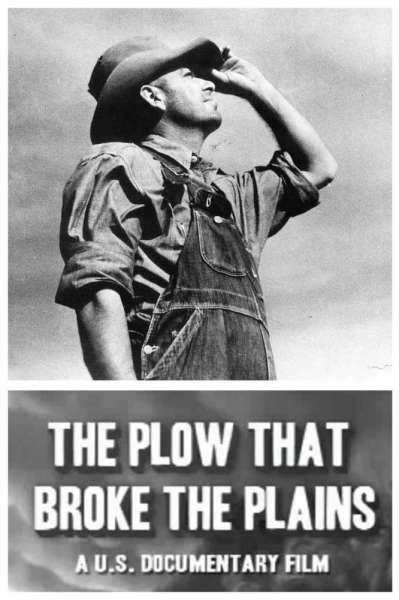
If you like this film, let us know!
Released in USA 10 may 1936
Length 25minutes
Directed by Pare Lorentz
OriginUSA
Genres Documentary
Themes Environmental films, Documentary films about business, Documentary films about environmental issues
Rating61%










The Plow That Broke the Plains is a 1936 short documentary film which shows what happened to the Great Plains region of the United States and Canada when uncontrolled agricultural farming led to the Dust Bowl. It was written and directed by Pare Lorentz. The film was narrated by the American actor and baritone Thomas Hardie Chalmers.
In 1999, The Plow That Broke the Plains was selected for preservation in the United States National Film Registry by the Library of Congress as being "culturally, historically, or aesthetically significant".
Actors

Thomas Chalmers
(Narrator (voice))
Comments
Leave comment :
Suggestions of similar film to The Plow That Broke the Plains
There are 4 films with the same actors, 2 films with the same director, 8862 with the same cinematographic genres, 1248 films with the same themes (including 93 films with the same 3 themes than The Plow That Broke the Plains), to have finally 70 suggestions of similar films.If you liked The Plow That Broke the Plains, you will probably like those similar films :

The River (1938)
, 31minutesDirected by Pare Lorentz
Origin USA
Genres Documentary
Themes Environmental films, Documentary films about business, Documentary films about environmental issues, Documentary films about historical events, Disaster films
Actors Thomas Chalmers
Rating63%






All In This Tea (2007)
Directed by Les Blank
Origin USA
Genres Documentary
Themes Environmental films, Documentary films about business, Documentary films about environmental issues
Actors Werner Herzog
Rating71%






World of Plenty (1943)
, 43minutesOrigin United-kingdom
Genres Documentary
Themes Environmental films, Documentary films about business, Documentary films about environmental issues
An opening narration explaining that the film's purpose is to examine the "world strategy of food", in terms of its production, distribution and consumption. The film is then divided into three parts: "Food - As It Was", "Food - As It Is" and "Food - As It Might Be".
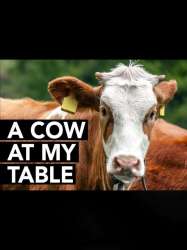
A Cow at My Table (1998)
, 1h30Directed by Jennifer Abbott
Origin Canada
Genres Documentary
Themes Films about animals, Environmental films, Documentary films about business, Documentary films about animal rights, Documentary films about law, Documentary films about environmental issues, Documentary films about politics, Films about cows, Political films, Documentary films about nature
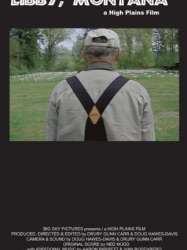
Libby, Montana (2004)
, 2h4Genres Documentary, Historical
Themes Environmental films, Documentary films about business, Documentary films about environmental issues
Rating78%






Standing Silent Nation (2006)
Genres Documentary
Themes Environmental films, Documentary films about business, Documentary films about law, Documentary films about environmental issues, Documentaire sur une personnalité
Rating72%






Genres Documentary
Themes Environmental films, Documentary films about business, Documentary films about environmental issues
Rating76%





Sur les traces des grands documentaristes Henri Storck et Joris Ivens, Patric Jean met en parallèle deux époques (1933-1999) et déplore en cette fin de siècle une misère toujours présente…, pire, intolérable aujourd’hui. Sous forme de lettre-vidéo adressée à Henri Storck, sa caméra s’attarde dans les familles, dans les quartiers, auprès des responsables politiques locaux pour illustrer la transmission de la misère intellectuelle et de la pauvreté d'une génération à l'autre. Ce qui étonne, c'est le silence qui entoure les pauvres : à force d’être méprisés, ils se méprisent eux-mêmes. Ils souffrent, en silence, dans une violence de tous les jours.

Strawberry Fields (2006)
, 1hOrigin Israel
Genres Drama, Documentary, Fantasy
Themes Films set in Africa, Environmental films, Films about religion, Documentary films about business, Documentary films about law, Documentary films about environmental issues, Documentary films about war, Documentary films about historical events, Documentaire sur une personnalité, Documentary films about politics, Documentary films about religion, Political films, Films about Jews and Judaism
Actors Mitsuki Tanimura, Yuria Haga
Strawberry Fields points out that strawberries grown in Gaza are the only agricultural product marketed internationally as being of Palestinian origin. One of the major Gaza strawberry farms in located at Beit Lahiya. More than 1,500 tons of strawberries are exported from Gaza to Europe through the Israeli company Agrexco. In order to get overseas, however, the fruits need to pass through the checkpoint that separates Israel and Gaza. The 2005–2006 growing season coincided with the Israel's disengagement from Gaza and the rise of Hamas as the ruling political entity. The armed conflict between Israel and Hamas resulted in the closing of the border checkpoint. The strawberries grown at Beit Lahiya cannot leave Gaza, resulting in significant losses for the farmers and their Agrexco partners. Unable to transport their produce, the farmers have no choice but to dispose of their crop and prepare for the following year’s growing season.
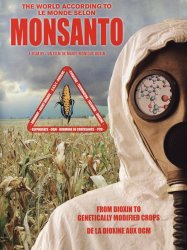 , 1h48
, 1h48Directed by Marie-Monique Robin
Origin France
Genres Documentary
Themes Environmental films, La mondialisation, Films about the labor movement, Documentary films about business, Documentaire sur l'altermondialisme, Documentary films about environmental issues, Documentaire sur le monde du travail
Rating79%





The film reports many controversies surrounding the use and promotion of genetically modified seeds, polychlorinated biphenyls (PCBs), Agent Orange, and bovine growth hormone. Cases in the United States (including Anniston, Alabama), Canada, India, Mexico, Paraguay, the United Kingdom (Scotland) and France, are explored, claiming that the Monsanto corporation's collusion with governments, pressure tactics, suppression and manipulation of scientific data, and extra-legal practices aided the company's attempts at dominating global agriculture. Scientists, representatives of the United States Food and Drug Administration and the United States Environmental Protection Agency, civil society representatives, victims of the company’s activities, lawyers, and politicians are interviewed.
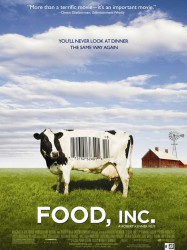
Food, Inc. (2008)
, 1h34Directed by Robert Kenner
Origin USA
Genres Documentary
Themes Films about animals, Cooking films, Environmental films, Medical-themed films, Obésité, Documentaire sur la cuisine, Documentary films about business, Documentary films about animal rights, Documentary films about law, Documentary films about environmental issues, Documentaire sur la malbouffe, Documentary films about health care, Films about disabilities, Political films, Documentary films about nature
Rating77%





Le film s’inspire de l’essai Fast Food Nation d’Eric Schlosser. Il traite de la production de nourriture à grande échelle aux États-Unis et conclut que la viande et les légumes produits par ce type d’industrie sont mauvais pour la santé et pour l’environnement malgré les messages et l'imagerie présents sur les emballages des aliments. Pour cela l'enquête s'attache sur l'élevage industriel de bovins et d'ovins en interrogeant des éleveurs enchaînés à leurs emprunts dans le but de suivre le cahier des charges des grandes firmes agroalimentaires comme Cargill ou Smithfield Foods ainsi que sur le rôle prépondérant du maïs la plupart du temps maïs génétiquement modifié dans la composition de la quasi-totalité des produits vendus en supermarché aux Etats-Unis et ailleurs dans le monde. Le témoignage d'une mère devenue défenseuse des droits des consommateurs à la suite du décès accidentel de son fils, Kevin Kowalcyk, empoisonné par la bactérie Escherichia coli après avoir mangé un hamburger apporte un argument supplémentaire. Cette famille a obtenu gain de cause avec l'adoption de la Kevin's Law.
 Connection
Connection